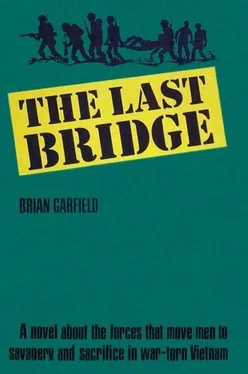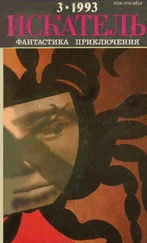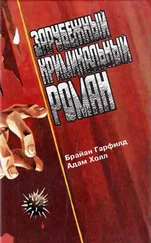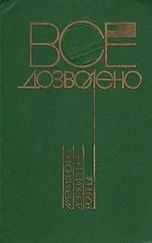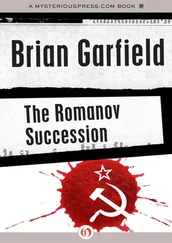“Five of.”
“Five of what?”
“Zero-six-fifty-five,” said Saville.
“Sorry,” Tyreen snapped.
“Okay.”
Saville put down his gun and took out his waterproof cigarette pack. He offered one to Tyreen. They lit up, and Saville said, “I ran into Harry Green last night. Drunk out of his mind. An M.P. told me he’d lost half his company out in the boondocks. Harry was in pretty bad shape.”
“That’s what you get for being soft,” Tyreen said.
“Uh-huh,” Saville said listlessly. “I wonder what’s bugging Corporal Smith.”
“He’s on the near edge of combat fatigue.”
“I wish we could send the kid home.”
“We can’t.”
“David.”
“What?”
“Suppose we can’t get Eddie out of there.”
“The orders are to silence him.”
Saville nodded. “That’s what I figured.”
Tyreen swore. “Jaynshill’s got something in the hole. He knows a lot more than what he let me see in his hand. He’s too anxious to shut Eddie up. I’m an old hand, Theodore, but I don’t see butchering your best friend, no matter what excuse you’ve got. If it was my job, I’d do my damnedest to get him out, and then if I failed I’d let it go at that.”
“But it isn’t your job,” Saville said. “So quit worrying about it. We’ve got our orders, that’s all.”
“No,” Tyreen said. “That isn’t all.”
“What else is there?”
Tyreen made no answer. His hand shook. He swallowed a quinine capsule, and Saville, witnessing his act, said: “Better go easy on those. You don’t want to pass out on us.”
“Worry about your own skin, all right?”
“That’s exactly what I’m doing.”
Tyreen’s tongue licked the poison tooth in the back of his mouth. Storm clouds were socked right down on the mountains and coming forward, toward the sea. A flight of birds soared overhead in close formation, white bellies and wings against a gray sky, moving without sound. Tyreen turned his head slowly to watch them glide out of sight. He glanced up the road; the light was murky and uncertain, a poor light for shooting. Sleepy, he opened a ration and ate. Saville said, “How much time do you think we ought to give it?”
“Another half-hour. Then we’ll pull out.”
“I hate to think of what the gooks can do to Eddie Kreizler in the hour we waste here.”
“I hate to think what they could do to him in the time it would take us to get to Chutrang on foot,” Tyreen answered. “It’s worth the risk.”
“I’m glad I didn’t have to decide that.”
J. D. Hooker snaked into sight through the grass. “Something coming up the road, sir.”
“I don’t hear anything,” said Tyreen.
“Some kind of wagon, I guess.”
“All right. Get back to your post.”
Hooker disappeared. Grass waved, marking his route. In time a faint squeaking reached Tyreen’s ears, and Saville said, “Hooker’s’ got radar. Like a bat.”
A fat water buffalo came around the bend and plodded up the road, pulling a cart with two huge wooden wheels. A wizened little Vietnamese walked along beside the animal. “Let them go by,” Tyreen said.
At a leisurely gait the cart rattled by and presently disappeared to the north, leaving deep ruts in the muddy road. After it was gone, nothing remained but the silence and a needle-thin beginning drizzle. Tyreen’s vision swam, and he closed his eyes until the spell passed. Saville said, “Well, we might try praying.”
Tyreen said nothing. It had not occurred to him to pray. He had always found the idea of God vaguely improbable; he did not believe in a benevolent deity who laid down millions of years of evolution in order to prepare for Ho Chi Minh and the submachine gun, and General Jaynshill’s order to free Kreizler or, that failing, kill him.
Tyreen believed in one thing: he believed that what he did would leave its mark. It was as unquestionable as the stones in the road.
Chapter Fifteen
0655 Hours
Captain Eddie Kreizler’s face was a bitter mask. The narrow cell was crowded and smelled of many things. It had a small population of rats that had to be driven back into their holes periodically. The darkness was almost complete; there was only the small slot-shaped hole in the door. If a man listened above the snores and groans of other prisoners, the growling of their bellies, and the occasional exhausted whispers, he could hear a sound or two that came from outside and gave reassurance that the world still turned: the drip of rain on the roof, an occasional tramping of boots across the compound, now and then the rumble of a motor vehicle.
The others were North Vietnamese political prisoners, crowded in like corpses. A young man kept talking nervously to Kreizler until Kreizler spoke rudely to him. The young man spat on him. “ Dey kok me-ey, ” he said — “American imperialist.” The young man’s teeth were black from chewing betel nuts. He climbed over several prisoners, stepped on a rat and squashed its head, and hunkered down in a far corner.
Offensive smells assaulted Kreizler’s nose, and he wondered what the PANVN interrogators had done to his executive officer, Lieutenant Chinh. He rubbed his aching jaw. The North Vietnamese captain had bruised him painfully, prying his mouth open and extracting the cyanide pill before Kreizler had got a chance to work it out and swallow it.
Eddie Kreizler thought, They won’t get a thing out of me.
He was thick-chested, long-legged. A small premature bald spot showed at his scalp lock. He had shrewd eyes and a square, amiable face, very wide across the cheeks and forehead. His nose was hooked; his mouth was made for easy smiling.
When the PANVN soldiers brought Lieutenant Chinh back to the cell, Kreizler focused his full attention on the South Vietnamese officer. They opened the door and pushed Chinh inside and slammed the door; made of metal, it clanged like a Chinese gong. Lieutenant Chinh sprawled across a prone man too starved and sick to move away. Chinh picked himself up and stood there, waiting for his eyes to adjust to the gloom. He did not seem badly hurt. They had bandaged his wounded arm. Kreizler’s solemn features lost their weariness, and he watched with great care, trying to catch some hint of expression on Chinh’s cheeks.
Chinh threaded a path forward. No one moved aside; a hoarse voice cursed him. He sat down beside Kreizler and did not speak; his unrevealing eyes looked at nothing in particular.
Kreizler said, “What did you tell them?”
“Nothing.”
Lieutenant Chinh had a narrow, handsome face and a thin body, lithe and wiry. A trimmed mustache graced his upper lip. He held up his hands, and even in the false light Kreizler could see matted blood over the knuckles and cuticles. The fingertips were already beginning to swell over the nails. Chinh put his hands down with care and smiled with his teeth. “I tell them nothing.”
“You will.”
“No. Nothing.”
Kreizler said, “They’ll take me out and soften me up, and then they’ll throw me back in here to think about it while they take you out again. Next time they’ll go to work on your feet and maybe stick a red-hot iron up your ass. Then they’ll toss you in here again and let me look at you and stew for a while. They’ll take me out again and give me the same treatment. They’ll have us working on each other.”
Chinh’s glance came up. “What do they want?”
“They want to know what I know.”
“What do you know, Captain?”
“A few things I don’t want them to know.”
“You can lie to them?”
“Not for very long. They know how to bust a man up.”
“And you do not trust me. You think I will talk.”
Читать дальше
